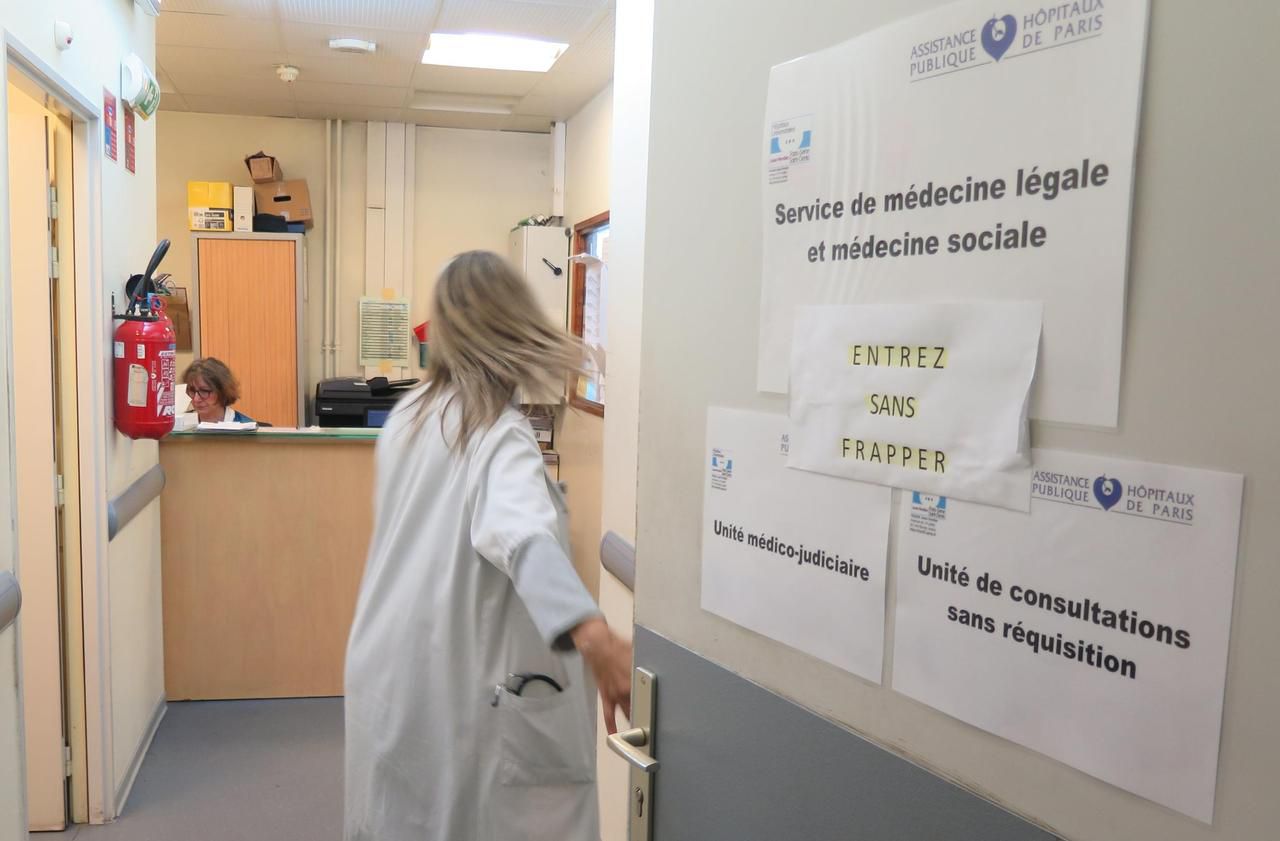A single telephone number, a common thread between the Saint-Antoine hospital (Paris 12th arrondissement) and the local police station, in order to facilitate complaints from victims of domestic violence. This is the subject of the agreement signed on Tuesday between the Paris prosecutor, the APHP Paris hospitals and the police headquarters. Clearly, it is the judicial police officer who will go to the bedside of the victim, without waiting for her to push, or not, the door of the police station.
“We have the will to intervene as soon as possible and before the victims return under the influence of their attacker, who sometimes even comes to pick them up when they are discharged from the hospital”, announces Rémy Heitz, the public prosecutor. République de Paris, whom we met.
Better protect, more effectively, faster. This is the goal of this Parisian experiment, scheduled for a year, and several others announced at the southern Ile-de-France hospital, in Essonne, or in Fontainebleau in Seine-et-Marne, in the wake of the Grenelle violence against women. The law of July 30, 2020 makes it possible to lift medical confidentiality in the event of immediate danger.
149 women killed in 2019
The challenge is urgent. 149 women were killed in 2019, 29 more victims than in 2018. While out of 213,000 women, aged 18 to 75, victims of psychological or sexual violence by their spouse in the course of a year, only 18% declared that they had filed a complaint, as recalled by the national observatory on violence against women.
Why so little? It is to understand what motivates these victims not to file a complaint that we pushed open the door of the Seine-Saint-Denis forensic service, at the Jean-Verdier hospital in Bondy. For six years, victims of domestic violence and sexual assault have been received by appointment, even if they have not filed a complaint. While usually, you must have filed a complaint before going to the medico-judicial unit (UMJ).
It took us several weeks to come back for one of these victims to agree to speak to us. She chose an assumed name, Magdala. Preserving his anonymity was the only condition placed on our presence at the medical appointment. She is 55 years old and begins her story by taking out her cell phone.
“He wanted to kill me”
“Look at the photos, my partner hit me very hard, he wanted to kill me,” she recounts. On the screen, a swollen eye, a few days earlier. “He had already broken my finger three months before. This time he beat me up, she goes on in one go, kicking me to the ground, I would have had to take a knife to defend myself, but I thought of the children. They need me, one of my daughters is pregnant … I went to the police station to do a handrail, the lady wanted me to file a complaint but I didn’t want to. And I didn’t tell the police everything. I was afraid he would be arrested. I don’t want him, I kicked him out since that. But I’m afraid of what the community will say if I file a complaint … “
She changed the lock, and at night she still leaves a key there. His speech oscillates between fear and pity. Afraid of reprisals? To be rejected by his own? Not to be protected by justice?


/nginx/o/2020/03/04/12986577t1h71f6.jpg)